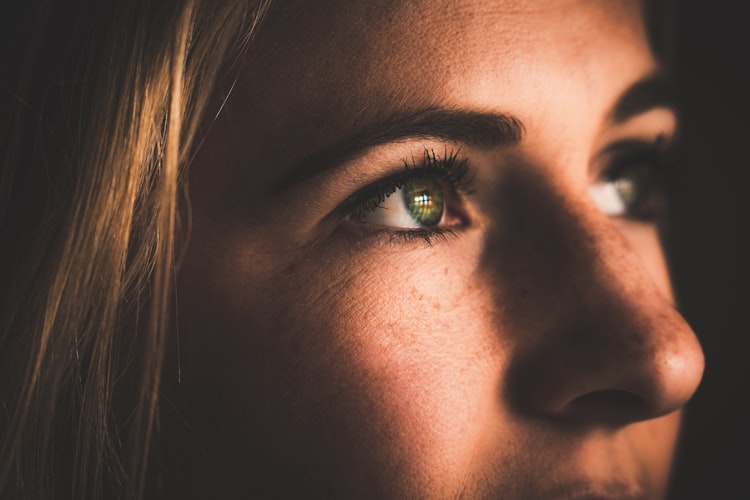When it comes to managing obstructive sleep apnea, your CPAP mask may ultimately be just as important as the CPAP machine itself. A quality mask should fit comfortably and ensure that you get a steady supply of air throughout the night.
If your mask is a poor fit, however, you could experience air leaks and other issues that compromise the quality of your treatment. Even if your CPAP machine is perfectly optimized for your needs, the wrong mask could keep you from actually improving your condition.
The following are some key warning signs that you need to adjust your mask — or possibly get a new one entirely.
1. Dry, Irritated Eyes
Leaks are perhaps the most common issue when your CPAP mask doesn’t fit properly. Because you wear this mask throughout the night, it means that the skin around the leaky part of the mask will get blasted with air for several hours. While this can dry out your skin, it can be more problematic when the leak affects your eyes.
The area around the bridge of your nose is the most prone to air leaks when your CPAP mask doesn’t fit properly. This means that the escaping air will go straight to your eyes. This can leave them feeling dry, red, and irritated in the morning.
There are two main issues that can contribute to this. The first is when you choose the wrong size mask for your face. A mask that is too large or too small is going to be more prone to leaks because it fails to form an airtight seal against the skin.
Even when you have a properly sized mask, however, you still need to adjust the straps to achieve a snug fit. You should adjust the mask after you lay down so that you can get it to fit. The right size mask, properly adjusted, will prevent leaks that cause dry eyes and compromise the effectiveness of your treatment.
2. Sores and Bruises on Your Skin
While air leaks are certainly a problem, some CPAP users take things too far in the opposite direction, adjusting their mask to the point where it becomes too tight.
When the mask is too tight, it digs into your skin. Because the mask is pressed against your face for so long, this can actually result in bruising and redness. If you don’t adjust this, the irritation can eventually result in painful sores around your face.
Similar to the issues that contribute to air leaks, skin irritation caused by your mask is usually the result of a mask that is either the wrong size or improperly adjusted. Your mask should not feel overly tight after you adjust it.
3. Your Mask is Discolored and Smells
Even if your current mask is a great fit, you won’t be able to use it forever. Exposure to the oils in your skin will cause the silicone and plastic used in the mask to gradually break down. This will cause the mask to take on a discolored yellowish appearance. Small cracks may also form as the plastic deteriorates.
Even with consistent, daily cleaning, this deterioration can make it easier for bacteria to become trapped in your mask. This could eventually lead to buildup or even mold growth that won’t go away.
When you notice such issues, it’s time to replace your mask. You can avoid this problem entirely by following the mask replacement guidelines suggested by the manufacturer.
What to Do About Common Mask Problems

Most CPAP mask issues ultimately come down to not having the right mask for your needs. Because of this, it is important that you measure your face and consider your sleep style when making a mask selection.
Most masks are available in three sizes, with sizing based on the distance from the bridge of your nose to just below the mouth for height, as well as the width of your mouth for the mask’s length. Each mask manufacturer lists the approximate measurements for its mask sizes. Choosing the size that comes closest to your measurements will provide a more comfortable fit that is less prone to leaks or skin irritation.
In addition to sizing, you will need to choose between a full face mask, a nasal mask, or nasal pillows. Your sleep specialist can help you determine which will be the best option based on your sleep habits. For example, if you breathe through your mouth at night, you will need a full face mask.
Finally, if you continue to experience problems with your CPAP masks even after making adjustments, don’t hesitate to speak with your sleep specialist. They can help you identify the source of your problems so you can get a better mask for your needs.
Find the Right CPAP Mask at No Insurance Medical Supplies
Whether you need a full face mask or nasal pillows, you’ll find the right match at No Insurance Medical Supplies. With masks and replacement components from 3B Medical, ResMed, Philips Respironics, and other leading brands, you’ll have no trouble finding a mask that fits comfortably to ensure top-quality therapy.
Even more importantly, we provide significant discounts on several CPAP masks, allowing you to save big on these needed replacements. Regardless of whether you have some level of insurance coverage for CPAP equipment or not, these savings can add up significantly over time, as many mask parts need to be replaced after three months.
Don’t settle for anything less than the best. With a comfortable mask that conforms to your face, you’ll get the results you need from your CPAP therapy.

